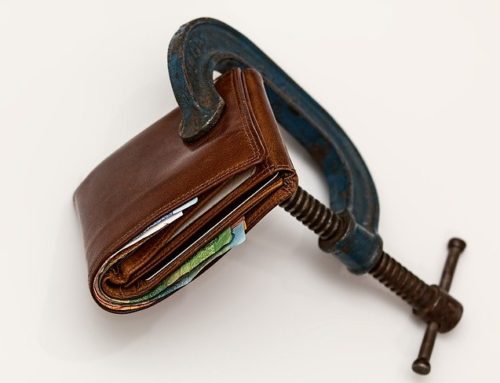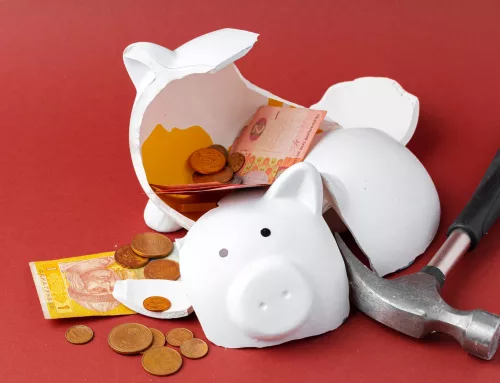High inflation rates in Jackson, MS
In the aftermath of the Covid-19, high demand, product shortages, and supply chain snarls have led to soaring prices in everything from used cars to grocery staples. This phenomenon – being able to buy less stuff over time due to rising prices – is inflation.
While some inflation is normal, high inflation (like the 7% we’re seeing now) burdens consumer pocketbooks. And while many employees have received pay increases thanks to the Great Resignation(the mass employee resignations that rocked the United States in 2021), they’re typically not enough to outpace inflation.
Fortunately, you can combat inflation even without a pay increase by making a few smart money moves. Here’s how.
Buy a home – before interest rates rise.
Renting in periods of high inflation typically favors landlords, as they can raise the rent to match (or beat) inflation. Ultimately, renters have to cough up the dough or look for greener pastures elsewhere.
High inflation also favors homeowners due to the increase in housing prices, which helps those with a mortgage build equity without making bigger payments. If you’ve been waiting to buy a new house until the market cools off, now may be the time.
Additionally, the Federal Reserve is looking to hike interest rates this year to combat inflation. Higher interest rates can lead to higher mortgage rates, which means that prospective homebuyers should lock in a low, fixed mortgage rate now – before they rise.
Trim where you can.
If you haven’t revisited your budget in a while, there’s no time like the present to find ways to save! No, we’re not going to harp about your Netflix subscription. Instead, we’re talking about cutting costs on necessities.
For instance, store coupons and apps like Ibotta and Rakuten can save money on the items you buy anyway. You can also hunt for spices, noodles, rice, snacks, and even household cleaners at your local dollar or discount store.
On the other hand, you can also shop for bulk products at membership warehouses like Sam’s Club or Costco. While you may spend more upfront, you can save tons in the long run.
Lastly, you can also call around to various service providers to negotiate a lower rate. From cable and internet packages to the interest rates on your credit cards, many businesses will work with you to keep you as a customer.
Postpone big purchases.
If you don’t have an immediate need, you may want to wait to postpone buying that new car, couch, or kitchen upgrade. Post-Covid-19, many industries – including manufacturing, construction, and even grocers – have seen unprecedented supply chain shortages. With ships backed up at ports and manufacturers struggling to source raw materials to make more products, prices are up across the board. When the bottleneck breaks and goods start flowing again, the price of some goods may drop substantially.
Opt for substitutions.
With the price of groceries up across the country, substituting the items in your grocery cart can save you more than you think.
For instance, switching from name-brand to store-brand can save you 15-30%. Plus, you can substitute items in your recipes for lower-cost alternatives, such as buying chicken instead of seafood, or frozen vegetables instead of fresh produce.
But the savings aren’t limited to your grocery bill. For example, switching from your fancy-pants gym to the local YMCA can help you save on your gym membership. You can also take steps like rotating your streaming services. Do you really need Hulu, Apple TV, and Netflix all at once? You can still enjoy your favorite shows – just one at a time.
Go green.
A period of high inflation seems like a weird time to make expensive investments, but the price of going green can pay off quickly. If you have the cash (or credit score), you might consider:
- Installing energy-efficient LED light bulbs
- Switching from your gas-guzzling car to an all-electric model
- Installing solar panels to reduce your electric bill (or even make money selling the extra electricity back to the utility company)
- Insulating your home
- Upgrading appliances to more energy-efficient models
Invest in inflation-friendly securities.
For investors, now’s the time to move money into more inflation-friendly securities that help your wealth grow (or at least not disappear).
Of course, diversification should be your first stop. If you’re not already, you might move your money into assets like stocks, Treasury Inflation-Protected Securities (TIPS), and commodities. You can also invest in mutual funds or ETFs that spread your money into different assets for you.
Investing in real estate is another way to diversify your portfolio and combat inflation. However, this investment typically requires a lot more cash upfront, and buying or selling houses can take time before your investment begins paying off.
Invest in yourself.
Until the Federal Reserve actually acts, it’s impossible to say how high they’ll raise interest rates or how it will impact inflation. But you shouldn’t wait on the Fed to start protecting your finances.
If you’re worried about how inflation will hit your finances, perhaps now’s the time to make the ultimate investment: in yourself. Whether you go back to college, take vocational classes, learn new skills online, or switch careers, there’s no time like the present to increase your earning potential.
And while a bigger paycheck won’t hedge against the eroding power of inflation, it will certainly give you a larger buffer when prices rise.
Learn from the Professionals.
Investing in yourself means learning about how to be financially savvy. Our competent lawyers at The Rollins Law Firm are here to help you tread carefully in the midst of a possible global financial crisis. Give us a call for a free consultation.








Connect with Us